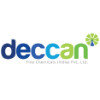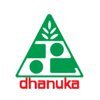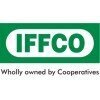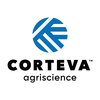Filter interviews by
Aarti Industries Interview Questions and Answers
208 Interview questions
Steps in RCC building construction include planning, design, site preparation, foundation work, and structural framing.
1. Planning: Define project scope, budget, and timeline.
2. Design: Create architectural and structural designs, including load calculations.
3. Site Preparation: Clear the site, conduct soil tests, and set up temporary facilities.
4. Foundation Work: Excavate and pour concrete for the foundation, en...
An Effluent Treatment Plant (ETP) treats industrial wastewater to minimize environmental impact and comply with regulations.
Removes harmful contaminants from wastewater before discharge.
Reduces pollution load on water bodies, protecting aquatic life.
Ensures compliance with environmental regulations, avoiding fines.
Can recycle treated water for reuse in industrial processes, saving resources.
Example: Textile indust...
An effluent treatment plant (ETP) treats wastewater to remove contaminants before discharge or reuse.
ETPs are essential for industries like textiles, pharmaceuticals, and food processing.
They typically use physical, chemical, and biological processes to treat wastewater.
For example, a textile ETP may remove dyes and chemicals from wastewater before it is released.
Treated effluent can be reused for irrigation or in...
Transfer refers to the process of moving data, materials, or responsibilities from one entity to another.
In data management, transfer can involve moving files from one server to another, such as migrating databases.
In manufacturing, transfer might refer to moving components from one assembly line to another for further processing.
In project management, it can mean delegating tasks from one team member to another t...
APQR preparation involves systematic data collection, analysis, and reporting to ensure product quality and compliance.
Collect data from various sources such as batch records, quality control results, and customer complaints.
Analyze trends in product quality, including deviations and non-conformances, to identify areas for improvement.
Review manufacturing processes and changes that occurred during the year to asse...
QA documentation ensures consistency, compliance, and clarity in processes, enhancing product quality and stakeholder communication.
Provides a clear framework for processes, ensuring all team members understand their roles and responsibilities.
Facilitates compliance with industry standards and regulations, such as ISO 9001 or FDA requirements.
Acts as a reference for training new employees, helping them quickly und...
Handling out-of-specification results involves investigation, documentation, and corrective actions to ensure quality compliance.
Identify the out-of-specification (OOS) result and document it immediately.
Conduct an investigation to determine the root cause, which may include reviewing testing procedures and equipment calibration.
Implement corrective actions based on the investigation findings, such as retraining s...
Root cause analysis identifies the fundamental cause of problems to prevent recurrence and improve processes.
Involves systematic investigation of issues to find underlying causes.
Common techniques include the 5 Whys and Fishbone Diagram.
Example: In manufacturing, if a product fails quality tests, root cause analysis may reveal a flaw in the production process.
Helps organizations implement corrective actions and im...
Database testing involves testing the data integrity, consistency, and accuracy of the database, while black box testing focuses on testing the functionality of the software without knowing its internal code.
Database testing ensures data integrity, consistency, and accuracy by verifying data stored in the database.
Black box testing focuses on testing the functionality of the software without knowing its internal c...
Agile methodologies are iterative approaches to software development that prioritize flexibility, collaboration, and customer feedback.
Agile methodologies involve breaking down projects into smaller, manageable tasks called sprints.
They emphasize continuous collaboration between cross-functional teams, including developers, testers, and stakeholders.
Agile methodologies prioritize responding to change and customer ...
Aarti Industries Interview Experiences
299 interviews found
I applied via Campus Placement and was interviewed before Jul 2023. There was 1 interview round.
(2 Questions)
- Q1. What re the different type of losses in pipes?
- Ans.
Different types of losses in pipes include frictional losses, sudden contraction/expansion losses, and bend losses.
Frictional losses occur due to the resistance of the fluid flow against the pipe walls.
Sudden contraction/expansion losses happen when the pipe diameter suddenly changes, causing turbulence and energy loss.
Bend losses occur when the fluid flow changes direction, leading to additional resistance and energy ...
- Q2. What is mechanical engineering?
- Ans.
Mechanical engineering is a branch of engineering that involves the design, analysis, and manufacturing of mechanical systems.
Involves designing and analyzing mechanical systems such as engines, machines, and tools
Focuses on principles of mechanics, materials science, and thermodynamics
Applications in various industries like automotive, aerospace, and manufacturing
Examples include designing a car engine, optimizing a m...
(2 Questions)
- Q1. Can you provide a brief introduction and describe how your typical working day unfolds at the office?
- Ans.
I am a Junior Test Engineer with a structured daily routine involving test planning, execution, and reporting.
Start the day by reviewing test plans and prioritizing tasks
Conduct testing on various software applications and systems
Document test results and report any issues to the development team
Participate in team meetings to discuss progress and challenges
Collaborate with colleagues to improve testing processes and m...
- Q2. Different types of testing and explain only two of them
- Ans.
Different types of testing include functional testing and performance testing.
Functional testing focuses on testing the functionality of the software to ensure it meets the requirements.
Performance testing involves testing the speed, scalability, and stability of the software under various conditions.
(2 Questions)
- Q1. What is database testing, and how does it differ from black box testing?
- Ans.
Database testing involves testing the data integrity, consistency, and accuracy of the database, while black box testing focuses on testing the functionality of the software without knowing its internal code.
Database testing ensures data integrity, consistency, and accuracy by verifying data stored in the database.
Black box testing focuses on testing the functionality of the software without knowing its internal code.
D...
- Q2. What are agile methodologies, and how have they been beneficial in your projects?
- Ans.
Agile methodologies are iterative approaches to software development that prioritize flexibility, collaboration, and customer feedback.
Agile methodologies involve breaking down projects into smaller, manageable tasks called sprints.
They emphasize continuous collaboration between cross-functional teams, including developers, testers, and stakeholders.
Agile methodologies prioritize responding to change and customer feedb...
(2 Questions)
- Q1. Can you provide details about your background and your previous company?
- Ans.
I have a Bachelor's degree in Computer Science and 2 years of experience in software testing at XYZ Company.
Bachelor's degree in Computer Science
2 years of experience in software testing at XYZ Company
- Q2. How do you approach salary negotiations and discussions regarding your joining date?
- Ans.
I approach salary negotiations and joining date discussions by researching industry standards, knowing my worth, and being open to compromise.
Research industry standards for salary ranges to have a realistic expectation
Know my own worth and the value I bring to the company
Be open to compromise and flexible with joining date if necessary
Interview Preparation Tips
(2 Questions)
- Q1. Which are the Important Points are considered during Sizing Of Control Valve ?
- Ans.
Important points considered during sizing of control valve
Fluid properties such as density, viscosity, and pressure
Flow rate and required pressure drop
Valve type and characteristics (linear, equal percentage, quick opening)
Process conditions and control system requirements
Allowable noise and cavitation levels
Valve sizing equations and calculations
- Q2. Which are the points are considered during Sizing of Flowmeter ?
- Ans.
Points to consider during sizing of flowmeter
Fluid type and properties
Flow rate range
Pipe size and material
Accuracy requirements
Installation conditions
Budget constraints
I appeared for an interview in Sep 2024.
(4 Questions)
- Q1. What is the importance of Quality Assurance (QA) documentation?
- Ans.
QA documentation ensures consistency, compliance, and clarity in processes, enhancing product quality and stakeholder communication.
Provides a clear framework for processes, ensuring all team members understand their roles and responsibilities.
Facilitates compliance with industry standards and regulations, such as ISO 9001 or FDA requirements.
Acts as a reference for training new employees, helping them quickly understa...
- Q2. What is the process for APQR (Annual Product Quality Review) preparation?
- Q3. What is root cause analysis?
- Ans.
Root cause analysis identifies the fundamental cause of problems to prevent recurrence and improve processes.
Involves systematic investigation of issues to find underlying causes.
Common techniques include the 5 Whys and Fishbone Diagram.
Example: In manufacturing, if a product fails quality tests, root cause analysis may reveal a flaw in the production process.
Helps organizations implement corrective actions and improve...
- Q4. What is the process for handling out-of-specification results?
- Ans.
Handling out-of-specification results involves investigation, documentation, and corrective actions to ensure quality compliance.
Identify the out-of-specification (OOS) result and document it immediately.
Conduct an investigation to determine the root cause, which may include reviewing testing procedures and equipment calibration.
Implement corrective actions based on the investigation findings, such as retraining staff ...
Interview Preparation Tips
(2 Questions)
- Q1. Material receipt process
- Q2. Material inventory process
(1 Question)
- Q1. Femaly background
(5 Questions)
- Q1. Chiller & Brine Plant related
- Q2. Ro plant working
- Q3. ETP working process
- Ans.
ETP working process involves the treatment of wastewater through a series of physical, chemical, and biological processes to remove contaminants.
Wastewater enters the ETP and undergoes primary treatment to remove large solids.
Secondary treatment involves biological processes to break down organic matter.
Tertiary treatment uses chemical processes to further remove contaminants.
Effluent is then discharged or reused depen...
- Q4. Troubleshooting techniques
- Ans.
Troubleshooting techniques involve identifying, analyzing, and solving problems to ensure smooth operations.
Identify the problem by gathering information and understanding the symptoms.
Analyze the possible causes of the issue by using logical reasoning and deductive skills.
Develop a plan of action to address the problem systematically.
Implement the solutions and monitor the results to ensure effectiveness.
Document the ...
- Q5. Nitrogen plant troubleshooting
Interview Preparation Tips
Skills evaluated in this interview
Assistant Research and Development Manager Interview Questions & Answers
posted on 10 Oct 2024
I applied via Referral and was interviewed in Sep 2024. There were 3 interview rounds.
Basic chemistry Name reaction and Mechanism
(2 Questions)
- Q1. Project reaction discussions
- Q2. Effluents treatment
(2 Questions)
- Q1. Previous Organisation CTC
- Ans.
Confidential
CTC information is confidential and not disclosed
Previous organization's CTC is not relevant to the current role
Focus should be on discussing skills and experiences relevant to the position
- Q2. Expected CTC maximum 30-35% hike
- Ans.
I am currently earning X amount and looking for a competitive offer within the range of 30-35% hike.
My current salary is X and I am seeking a competitive offer within the specified range.
I have researched the market rates for Assistant Research and Development Managers in similar industries.
I am confident in my skills and experience to justify the salary increase.
I am open to discussing the compensation package and ben...
Interview Preparation Tips
I appeared for an interview in Oct 2024.
(2 Questions)
- Q1. What is Heat of formation
- Ans.
Heat of formation is the energy released or absorbed when one mole of a compound is formed from its elements in their standard states.
Heat of formation is also known as standard enthalpy of formation.
It is typically measured in units of kJ/mol.
Negative heat of formation indicates exothermic reaction, while positive heat of formation indicates endothermic reaction.
For example, the heat of formation of water (H2O) is -28...
- Q2. What is heat of reaction
- Ans.
Heat of reaction is the amount of heat released or absorbed during a chemical reaction.
Heat of reaction can be exothermic (heat released) or endothermic (heat absorbed).
It is typically measured in units of joules or calories.
Examples include combustion reactions releasing heat and photosynthesis reactions absorbing heat.
I applied via Referral and was interviewed in Sep 2024. There were 3 interview rounds.
Basic Chemistry, reactions and relevant information
(2 Questions)
- Q1. Reactions mechanism
- Ans.
Reaction mechanisms explain the step-by-step process by which a chemical reaction occurs.
Reaction mechanisms show the individual steps involved in a chemical reaction.
They often involve the breaking and formation of chemical bonds.
Intermediate species may be formed during the reaction.
Mechanisms can be classified as stepwise or concerted.
Examples include SN1, SN2, E1, E2 reactions in organic chemistry.
- Q2. Stereochemistry of reactions
- Ans.
Stereochemistry of reactions involves the study of the three-dimensional arrangement of atoms in molecules and how it affects the outcome of chemical reactions.
Stereochemistry determines the spatial arrangement of atoms in a molecule, which can impact the reactivity and selectivity of reactions.
Chirality is an important concept in stereochemistry, where molecules can exist as enantiomers or diastereomers.
Stereoisomers ...
(2 Questions)
- Q1. Previous experience CTC
- Q2. Expected CTC Relocation Condition
- Ans.
Expected CTC and willingness to relocate are negotiable based on the job offer and benefits.
Expected CTC can vary based on the job responsibilities, experience, and industry standards.
Relocation condition depends on the location of the job, personal circumstances, and benefits offered by the company.
Both Expected CTC and Relocation Condition are open for discussion during the interview process.
(4 Questions)
- Q1. What is DCS ???
- Ans.
DCS stands for Distributed Control System, a computerized control system used to control and monitor industrial processes.
DCS is used in industries such as oil refining, power generation, and manufacturing.
It allows for centralized control of multiple control loops and process units.
DCS typically consists of controllers distributed throughout the plant, connected by a communication network.
Examples of DCS vendors inclu...
- Q2. How DCS work ??
- Ans.
DCS (Distributed Control System) is a system used to control and monitor industrial processes.
DCS uses multiple controllers distributed throughout a plant to control various processes
It allows for centralized monitoring and control of the entire system
DCS systems often use graphical interfaces for operators to interact with the system
DCS can be used in industries such as oil and gas, power generation, and manufacturing
- Q3. What is TLV of chlorine
- Ans.
TLV of chlorine is the maximum concentration of chlorine that a worker can be exposed to without experiencing adverse health effects.
TLV stands for Threshold Limit Value
TLV for chlorine is 1 ppm (parts per million)
TLV is set by the American Conference of Governmental Industrial Hygienists (ACGIH)
Exposure to chlorine above TLV can cause respiratory irritation, coughing, and chest tightness
- Q4. What is distillation ?? Tell about reflux also
- Ans.
Distillation is a process used to separate components of a liquid mixture based on their boiling points. Reflux is the return of condensed vapors back into the distillation system.
Distillation involves heating a liquid mixture to create vapor, then cooling the vapor to collect the separated components.
The components with lower boiling points vaporize first and are collected, while the components with higher boiling poi...
Interview Preparation Tips
- Q1. Plant over all process i have explained
- Q2. Family sequrity
Top trending discussions






Aarti Industries Interview FAQs
The duration of Aarti Industries interview process can vary, but typically it takes about less than 2 weeks to complete.
Tell us how to improve this page.
Aarti Industries Interviews By Designations
- Aarti Industries Assistant Manager Interview Questions
- Aarti Industries Office Trainee Interview Questions
- Aarti Industries Deputy Manager Interview Questions
- Aarti Industries DCS Operator Interview Questions
- Aarti Industries Executive Production Interview Questions
- Aarti Industries Executive Interview Questions
- Aarti Industries Graduate Engineer Trainee (Get) Interview Questions
- Aarti Industries Operations Executive Interview Questions
- Show more
Interview Questions for Popular Designations
- Office Trainee Interview Questions
- Assistant Manager Interview Questions
- Deputy Manager Interview Questions
- DCS Operator Interview Questions
- Executive Interview Questions
- Operations Executive Interview Questions
- Executive Production Interview Questions
- Graduate Engineer Trainee (Get) Interview Questions
- Show more
Overall Interview Experience Rating
based on 275 interview experiences
Difficulty level
Duration
Interview Questions from Similar Companies
Aarti Industries Reviews and Ratings
based on 3.2k reviews
Rating in categories
|
Assistant Manager
660
salaries
| ₹4.5 L/yr - ₹12.6 L/yr |
|
Deputy Manager
591
salaries
| ₹6.6 L/yr - ₹18.5 L/yr |
|
Executive
522
salaries
| ₹2.5 L/yr - ₹7.7 L/yr |
|
Senior Executive
347
salaries
| ₹3.3 L/yr - ₹9 L/yr |
|
Plant Operator
346
salaries
| ₹1.6 L/yr - ₹5.2 L/yr |

UPL
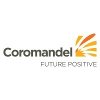
Coromandel International
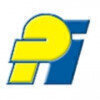
PI Industries

Rallis India
- Home >
- Interviews >
- Aarti Industries Interview Questions



